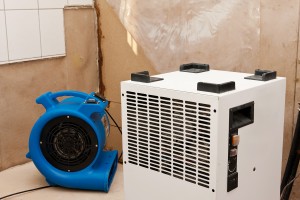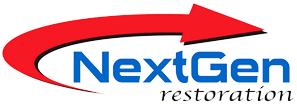What is “Chinese Drywall” anyway?
While all the effects of “Chinese” or “odorous” drywall are still being uncovered, there is unanimous agreement that it is toxic, and harmful to both people and building materials. It’s a misnomer that all of the affected drywall is from China. Leading research has identified the culprit causing the issues as being a variety of sulfur compounds present in the drywall composition. While all drywall does have these sulfur compounds, the issue with “Chinese drywall” is created by the combination and concentration of them, coupled with the toxic environments where they are installed.
What are the signs that I have a problem?
- Corrosion on copper or galvanized metal. Copper oxidation (on air conditioner coils, refrigerator coils, etc.) should be greenish in nature. If it is black, it is likely due to contaminated drywall.
- Frequent replacement of A/C system or refrigerator components (such as air coils). DANGER: If you have experienced loss of “freon” or refrigerant from your A/C system, it may have leaked into your home from sulfur-eaten pinholes in your equipment.
- Electrical issues – Oxidation of copper wire is a hazard. However, the issue is compounded by the oxidation in that it affects the way that electrical current is carried on the wire. The electrical resistance changes, creating the increased likelihood of anomalies and possibly even fires.
- Silver jewelry turning black
- Respiratory problems
 |
What is the process of removal?The general theory for remediation is to remove all of the affected materials. No one will argue that this would certainly include the drywall and HVAC system. However, trusses use galvanized gussets and the electrical system is composed completely copper wire, so the final level of demolition required is widely disputed. Careful evaluation of the current state of these additional components would be recommended |
Does homeowner insurance cover the cost?
As of the latter part of 2010 and to the best of our knowledge, remediation of this hazard is not being covered by your homeowner’s policy. NextGen is hearing that this is being considered to be a construction and/or material defect and, as such, no coverage is being offered.
Where to begin: chinese drywall Inspections
There are several methods of testing currently being used, but unfortunately it is costly and no single test will find every sulfur compound suspected.
However, your “peace of mind” is extremely important, so NextGen does provide visual inspections and a full array of testing for these compounds on a consulting basis. It is our goal to use our current knowledge & expertise to locate any possible hazards in your home, and then work with you to find a solution.
Contact our central office in Tampa at
813.962.6855 for an appointment.

